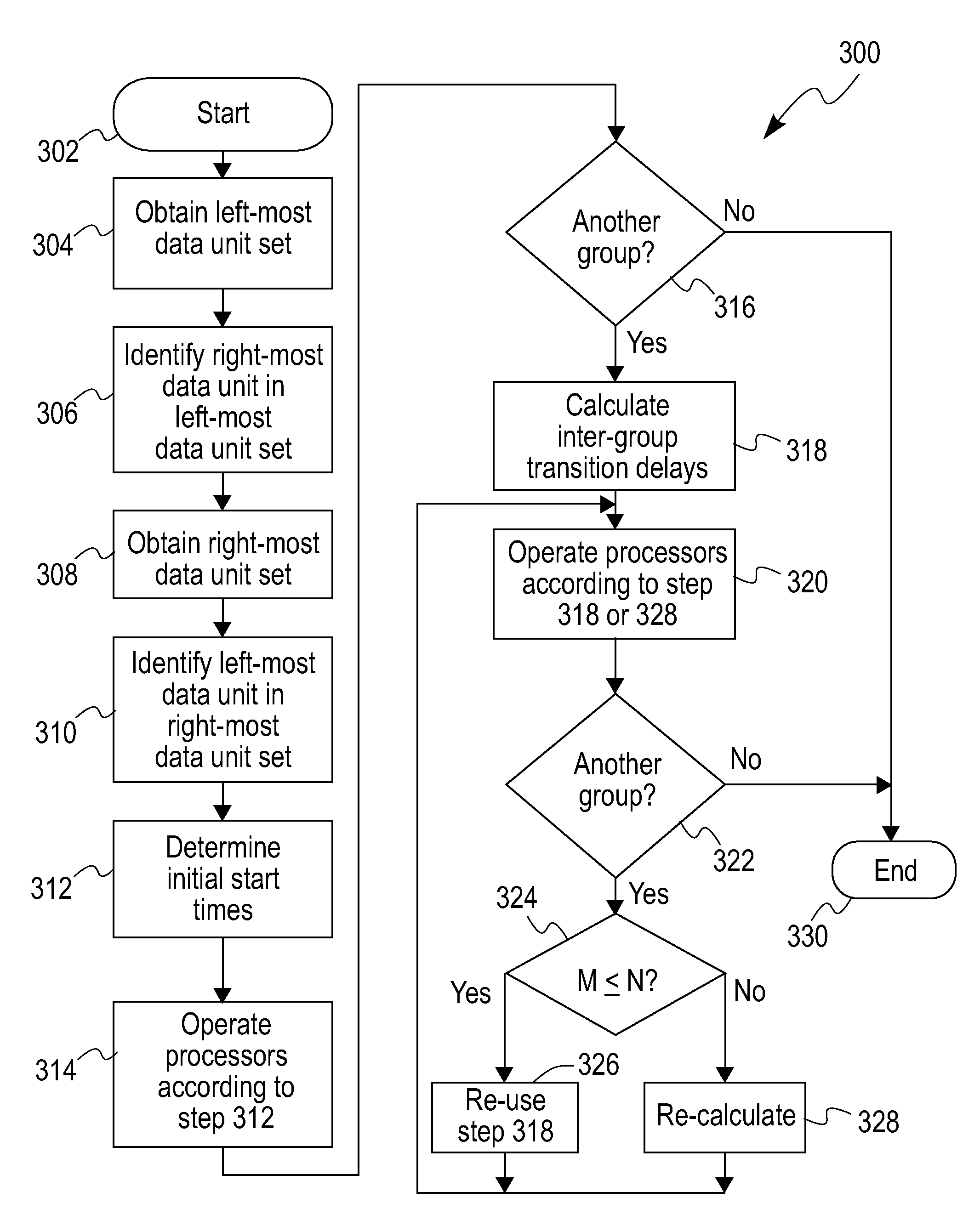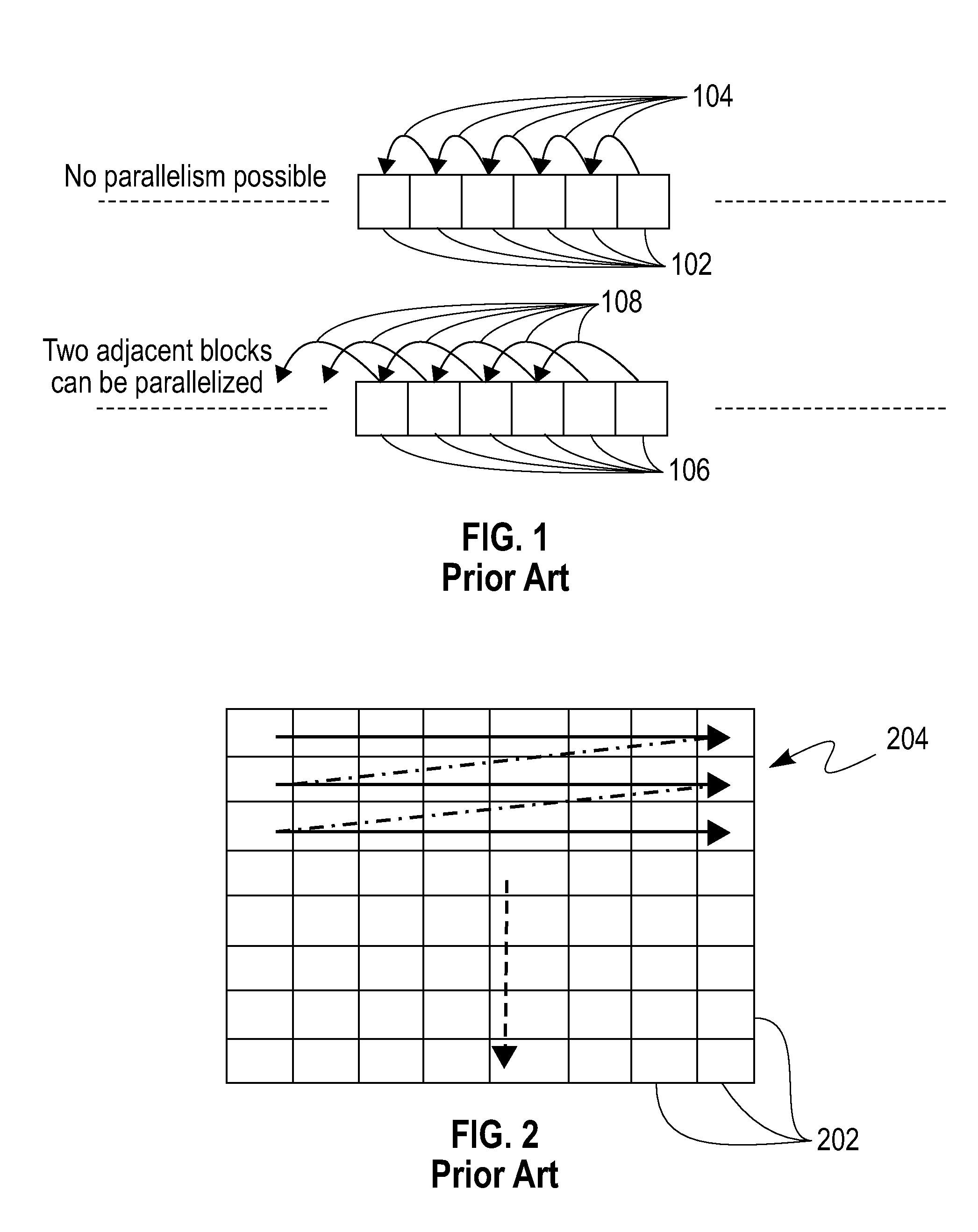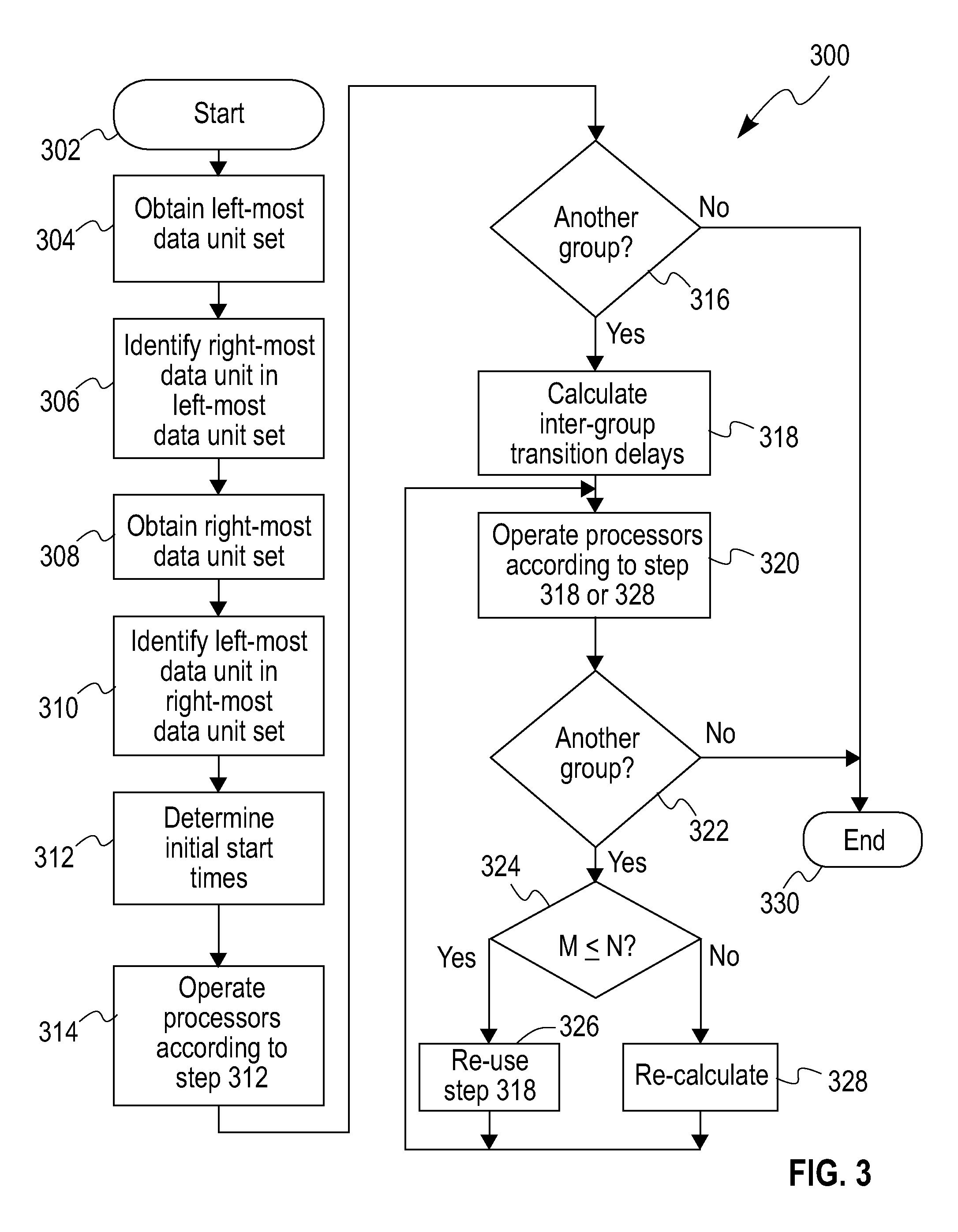Parallel Processing of Multi-Dimensional Data With Causal Neighborhood Dependencies
a multi-dimensional data and dependency technology, applied in the field of parallel processing of data, can solve the problems of limited pipeline speed, inability to optimize computational performance or load,
- Summary
- Abstract
- Description
- Claims
- Application Information
AI Technical Summary
Benefits of technology
Problems solved by technology
Method used
Image
Examples
example
[0061]Consider the non-limiting example of differential coding of motion vectors in H.263, where neighboring motion vectors are used to predict the current motion vector using a structure shown in FIG. 7. The dependencies between blocks extend to only one row 702 above the current row 704, with a maximum distance r1=1. Consider a QCIF (quarter common intermediate format) (176×144) size frame with (16×16) size blocks, i.e. B=11. If we use one processor, the total time to process the frame is 99T. Instead, if we use N=3 processors, then these have start locations PR0=0, PR1=1 and PR2=2, and the waiting time overhead is W0=2T. For each additional set of 3 rows that need to be processed the wait time W1=0, since B>2. The total time to process this frame using three processors is 33T+2T.
Exemplary System and Article of Manufacture Details
[0062]A variety of techniques, utilizing dedicated hardware, general purpose processors, firmware, software, or a combination of the forgoing may be emp...
PUM
 Login to View More
Login to View More Abstract
Description
Claims
Application Information
 Login to View More
Login to View More - R&D
- Intellectual Property
- Life Sciences
- Materials
- Tech Scout
- Unparalleled Data Quality
- Higher Quality Content
- 60% Fewer Hallucinations
Browse by: Latest US Patents, China's latest patents, Technical Efficacy Thesaurus, Application Domain, Technology Topic, Popular Technical Reports.
© 2025 PatSnap. All rights reserved.Legal|Privacy policy|Modern Slavery Act Transparency Statement|Sitemap|About US| Contact US: help@patsnap.com



